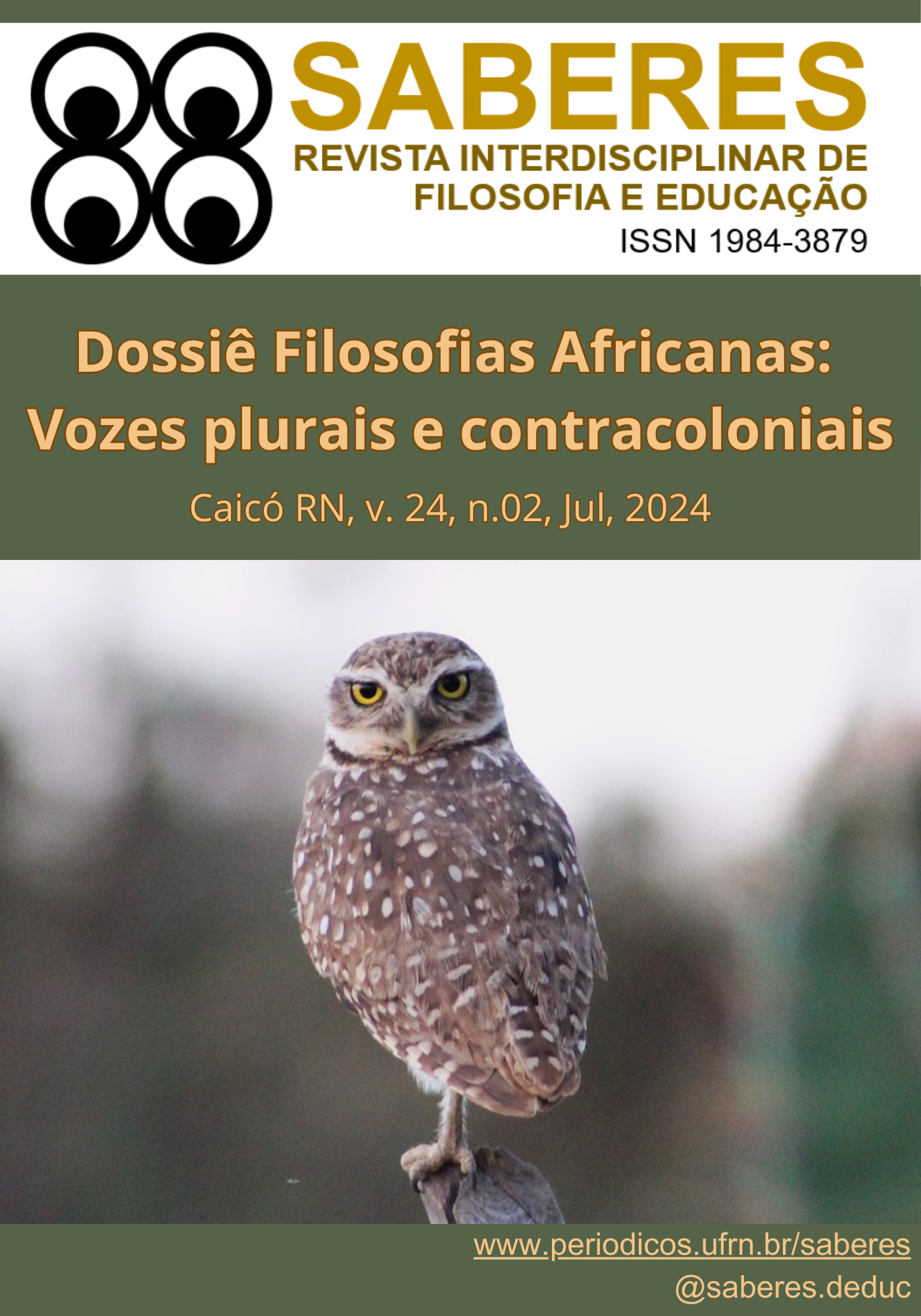ALLOW ME TO SAY NO TO MY SCARS THE DECOLONIAL CRY UBUNTU OF THE EMICIDA
DOI:
https://doi.org/10.21680/1984-3879.2024v24n2ID33046Keywords:
cultural criticismAbstract
The marks of colonization and slavery are present in the history of Brazil and in subjectivities, however these ills do not define identities. This is the cry/alert that Emicida brings in the song AmarElo (2019). This article proposes to analyze the musical work from the perspective of decolonial thinking and cultural-social critique, observing how the composer builds intersectionality in the work and what is the significance of the invited subjects for the musical pluridiversity.
Downloads
References
ALMEIDA, Sônia. R. (2010). Prefácio. In G. C. Spivak. Pode o Subalterno falar? Editora UFMG.
HALL, Stuart. (2003). Da Diáspora: Identidades e Mediações Culturais. Editora UFMG.
KILOMBA, Grada. (2019). Memórias da Plantação: Episódios de Racismo Cotidiano. Editora Cobogó.
MIGNOLO, Walter D. (2017). Colonialidade, o lado mais escuro da modernidade. Editora PUC-Rio,
Moreira, T. A. (2018). Cultura: entre a arena de luta e o movimento Hip Hop. Revista FAMECOS, 25 (2), ID27498. https://doi.org/10.15448/1980-3729.2018.2.27498
MORENO, Alejandro. (2005). Superar a exclusão, conquistar a equidade: reformas, políticas e capacidades no âmbito social. In Edgardo Lander (org). A colonialidade do saber: eurocentrismo e ciências sociais. Perspectivas latino-americanas. Colección Sur Sur, CLACSO. https://biblioteca-repositorio.clacso.edu.ar/
QUIJANO, Anibal. (2005). Colonialidade do poder, eurocentrismo e América Latina. In Edgardo Lander (org). A colonialidade do saber: eurocentrismo e ciências sociais. Perspectivas latino-americanas. Colección Sur Sur, CLACSO. https://biblioteca-repositorio.clacso.edu.ar/
SANTOS, Antônio Bispo dos (2015). Colonização, Quilombos, Modos e Significações. Editora INCTI/UnB.
SPIVAK, Gayatri Chakravorty (2010). Pode o subalterno falar? Editora UFMG
Downloads
Published
How to Cite
Issue
Section
License
Copyright (c) 2024 Jailma dos Santos Pedreira Moreira, Nádja Nayra Brito Leite

This work is licensed under a Creative Commons Attribution-NonCommercial-ShareAlike 4.0 International License.
Este obra está licenciado com uma Licença Creative Commons Atribuição 4.0 Internacional.
Autores que publicam nesta revista concordam com os seguintes termos:
a. Autores mantém os direitos autorais e concedem à revista o direito de primeira publicação, com o trabalho simultaneamente licenciado sob a Licença Creative Commons Attribution 4.0 que permite o compartilhamento do trabalho com reconhecimento da autoria e publicação inicial nesta revista.
b. Autores têm autorização para assumir contratos adicionais separadamente, para distribuição não-exclusiva da versão do trabalho publicada nesta revista (ex.: publicar em repositório institucional ou como capítulo de livro), com reconhecimento de autoria e publicação inicial nesta revista.
c. Autores têm permissão para publicar e distribuir seu trabalho online (ex.: em repositórios institucionais ou na sua página pessoal) após a publicação inicial nesta revista, já que isso pode gerar alterações produtivas, bem como aumentar o impacto e a citação do trabalho publicado (Veja O Efeito do Acesso Livre).
Foram feitos todos os esforços para identificar e creditar os detentores de direitos sobre as imagens publicadas. Se tem direitos sobre alguma destas imagens e não foi corretamente identificado, por favor, entre em contato com a revista Saberes e publicaremos a correção num dos próximos números.


 English
English Español (España)
Español (España) Português (Brasil)
Português (Brasil)



